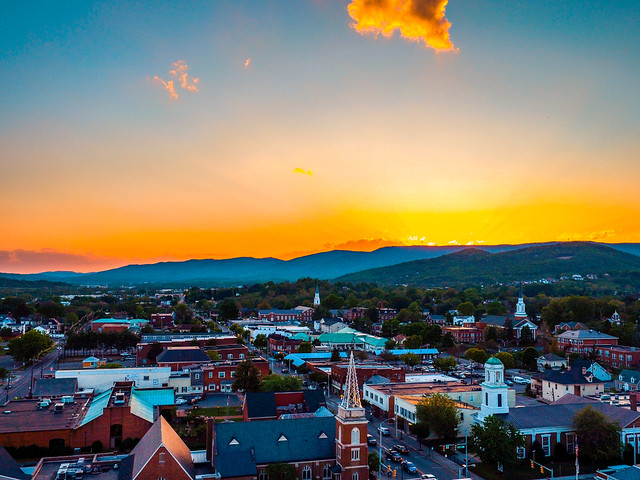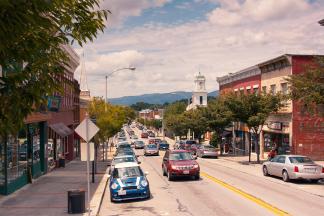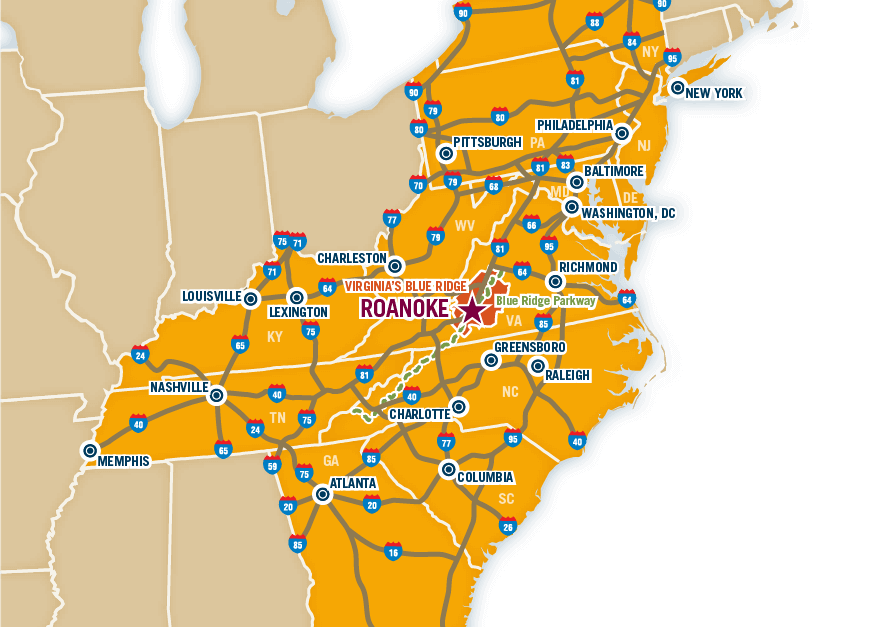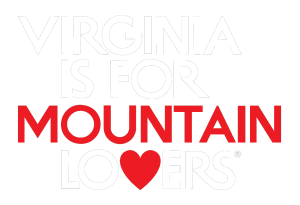Explore the quaint shops and unique charm of Main Street in Downtown Salem!
-
Things To Do
- Arts & Culture
- Attractions
- Beer, Wine & Spirits
- Blue Ridge Parkway
- Events
- Free Things To Do
- History & Heritage
- Kid Friendly
- Nightlife
-
Outdoor Adventure
- Leave No Trace
- Appalachian Trail
- Biking
- Climbing
- Disc Golf
- Fall Color Spots
- Fishing
- Geocaching
- George Washington & Jefferson National Forests
- Greenways
- Hiking Trails
- Horseback Riding
- Kayaking & Paddling
- Kid Friendly Outdoors
- Motorcycle Touring
- Outdoor Outfitters & Shops
- Scenic Drives
- Water Sports
- Wildlife Viewing & Birding
- Classes & Workshops
- Sample Itinerary
- Sample Itineraries
- Shopping
- Spas
- Sports
- Tours
- VBR Savings Pass
- Hotels/Lodging
- Restaurants
- Region
- Plan
History of Salem
The City of Salem, population 25,000, was the first settlement in the Roanoke Valley. Some say Salem's name is derived from "shalom," meaning peace. Others say it was named by an early settler, William Bryan, after his hometown in New Jersey.
Archaeological evidence of Indian activity in Salem dates from 8,000 - 9,000 B.C. until the middle of the 18th century. The Tutelo Indian tribe is believed to have lived near the Roanoke River in the vicinity of what later became Salem.
The founder of Salem was General Andrew Lewis. Lewis is buried in Salem, where a monument marks his grave. A statue of Lewis, one of six which surrounds the George Washington Monument, also stands in Richmond's Capitol Square.
A prominent citizen and leader of Botetourt County, Gen. Lewis acquired a 625-acre estate in 1768 which he named "Richfield." This estate, which contained most of the area of Salem's present city limits, was later subdivided and sold.
In 1800, wealthy landowner James Simpson bought a tract which became Salem for $100. His newly purchased 31 acres were ideally located geographically because they encompassed land on both sides of a road frequented by travelers heading northeastward and southwestward.
Simpson, hoping to take advantage of the heavy traffic on the dirt and gravel roadways of his day - the Wilderness Road and the Great Road - established a town which, in turn, generated commerce in the Roanoke Valley.
In 1806, the Virginia General Assembly granted a charter to Simpson creating the Town of Salem. It was comprised of 16 acres of the Gen. Lewis estate and was bound by Church Alley along with Calhoun, Clay, and Union Streets.
In 1838, the huge county of Botetourt was subdivided to create Roanoke County and Salem was designated the county seat.
An event of immeasurable impact on Salem and its future occurred in 1847. Roanoke College came to town in a single wagon, transplanted from Mount Tabor in Augusta County. Today the Lutheran-affiliated private liberal arts school lends enormous culture to the area.
Salem was chartered as a city in 1968 to continue its traditional pace.
Present-Day Salem
Salem is a contrast of quaint, charming historical culture and thriving modern industry. Many of its charming downtown Victorian homes are on the National Register of Historic Places. Major industries include the V.A. Hospital, Lewis-Gale Hospital and Clinic, and General Electric.
Salem is also home to the Salem Civic Center, where the Salem Fair and Exposition, the second largest fair in Virginia, is held each July. It's also home to the annual Blue Ridge Music Festival, which has quickly become known as one of the premier country music festivals in the world.
A sports oriented city, Salem provides Class A professional baseball at Salem Memorial Baseball Stadium with the Salem Red Sox, a Boston Red Sox minor league affiliate.
Salem also has an 8,000 seat football stadium, which is home of the Salem High School Spartans. Three superb golf courses also are located in Salem.
One of the most popular festivals in the Roanoke Valley, Olde Salem Days, is held each September. It features one of the largest antique car shows on the east coast, as well as an arts and crafts show.
The city's public library serves as an important resource for some of the earliest information about the Roanoke Valley, as does the Salem Museum.
Self-Guided Tour
The Historic Walking Tour of Salem is an excellent way to explore Downtown Salem and learn more about the history and culture of this unique part of Virginia's Blue Ridge. It's a self-guided tour with 22 stops that can be easily incorporated into a visit to Salem. Learn more >
In This Section
Want the latest on Virginia’s Blue Ridge? Securely sign up for our FREE e-newsletter:
Visit Virginia's Blue Ridge 101 Shenandoah Avenue NE Roanoke, VA 24016 (540) 342-6025 (800) 635-5535
Visit Virginia’s Blue Ridge is committed to cultivating an atmosphere that welcomes and celebrates the unique backgrounds, abilities, passions, and perspectives of our vibrant community. As our region’s only destination marketing organization, we have a responsibility to showcase the best the Roanoke Region has to offer, and those assets and strengths come in varied forms. We embrace differences in race, religion, sexual orientation, gender, gender identity or expression, language, visible and invisible disabilities, and all the intersecting identities that make Virginians and visitors alike so unique. We believe our differences make us stronger– and better.









